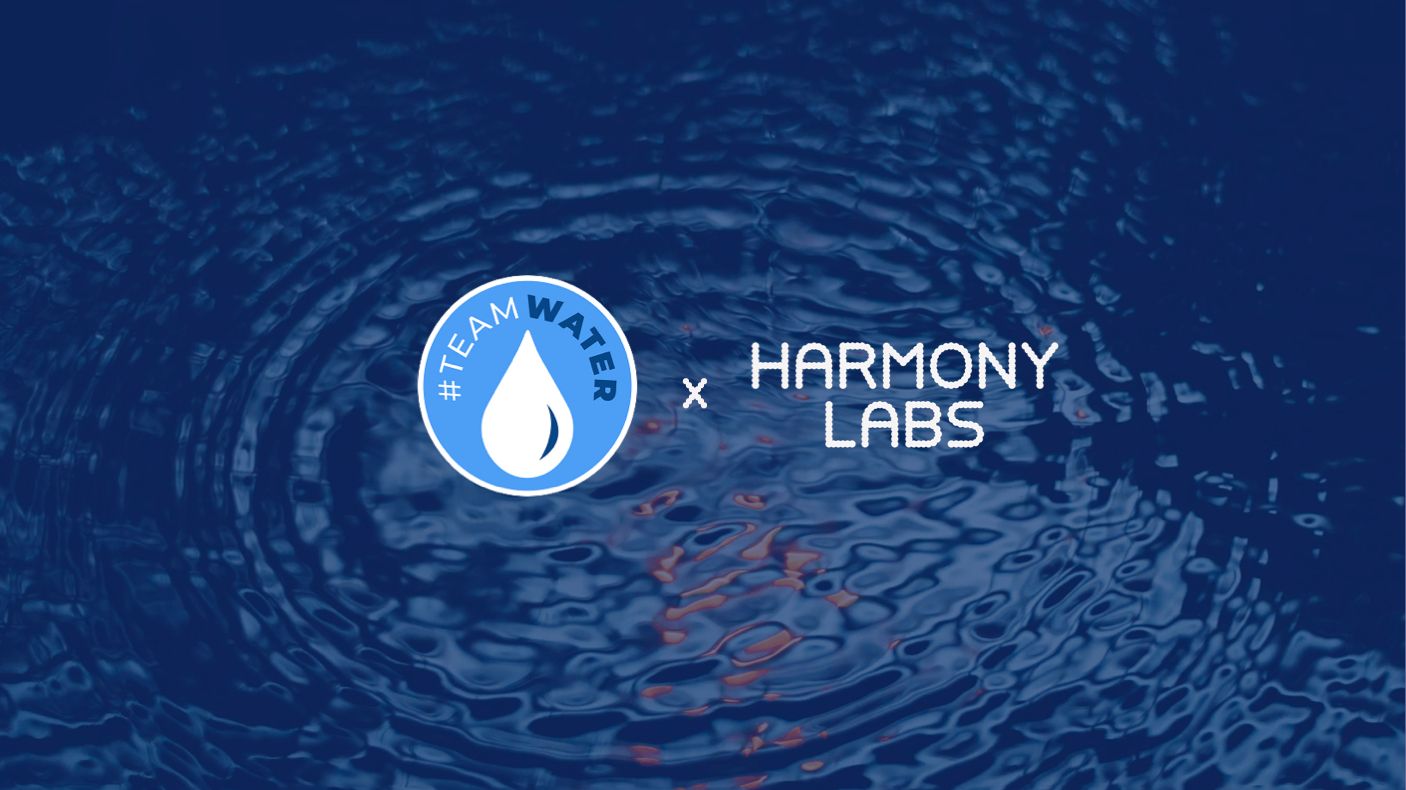Four Principles For Building Power in Media

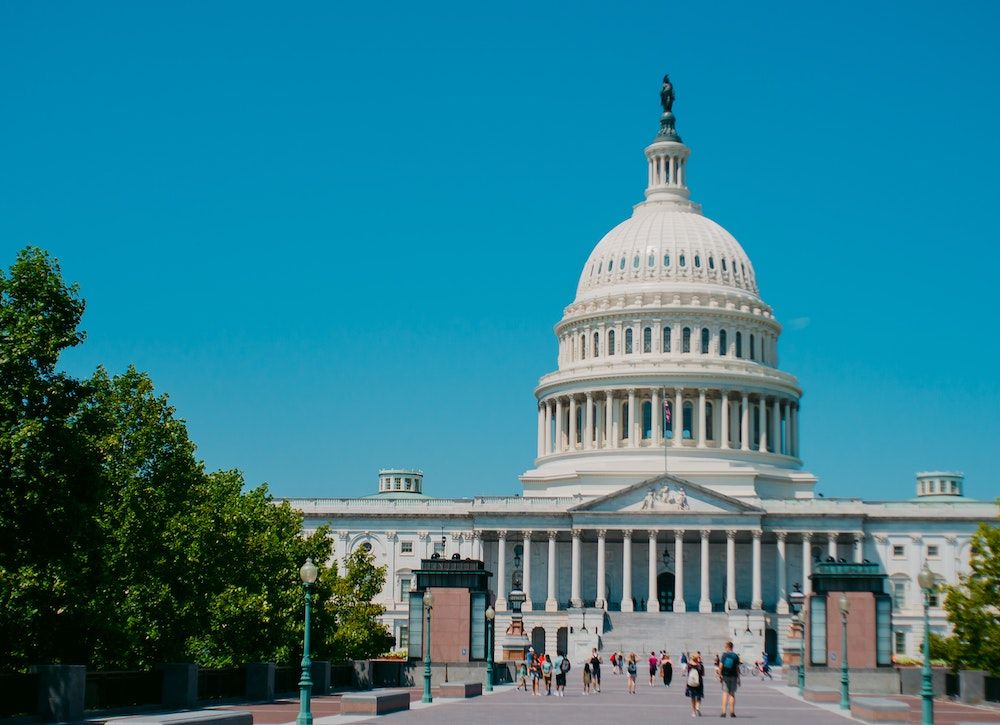
2022-05-19
We’ve been hearing from more and more people in our community about an urgent need to restore faith in democracy and the democratic process. So we’ve been thinking hard about what Harmony Labs, as a media research studio, can do to answer this need. Helping media systems better support democratic culture is part of our mission, after all, and we’ve been reflecting on the the relationship between media and democracy since long before the January 6th insurrection.
So this month we started imagining a pipeline of insights and subscription-based reporting on how democracy shows up in the media for different audiences in the U.S., along with narrative opportunities to increase in the relevance of democracy as a topic in the media and pro-democracy narratives for key audiences. We share a few general, early insights here to gauge interest in this kind of pipeline and reporting. So if this is something you feel is needed and could use in your own work, please email us.
It turns out that democracy is only sometimes a very big part of our culture, as reflected in the media. About 15% of all people who read any news around election day 2020 read something about democracy — but the scope of democracy stories is limited to voting and elections.
This chart shows the reach of the word democracy in news read over the last two years as imputed from our opt-in media consumption research panels.Spikes appear around Election Day and the insurrection, and quickly fall away outside of those events.
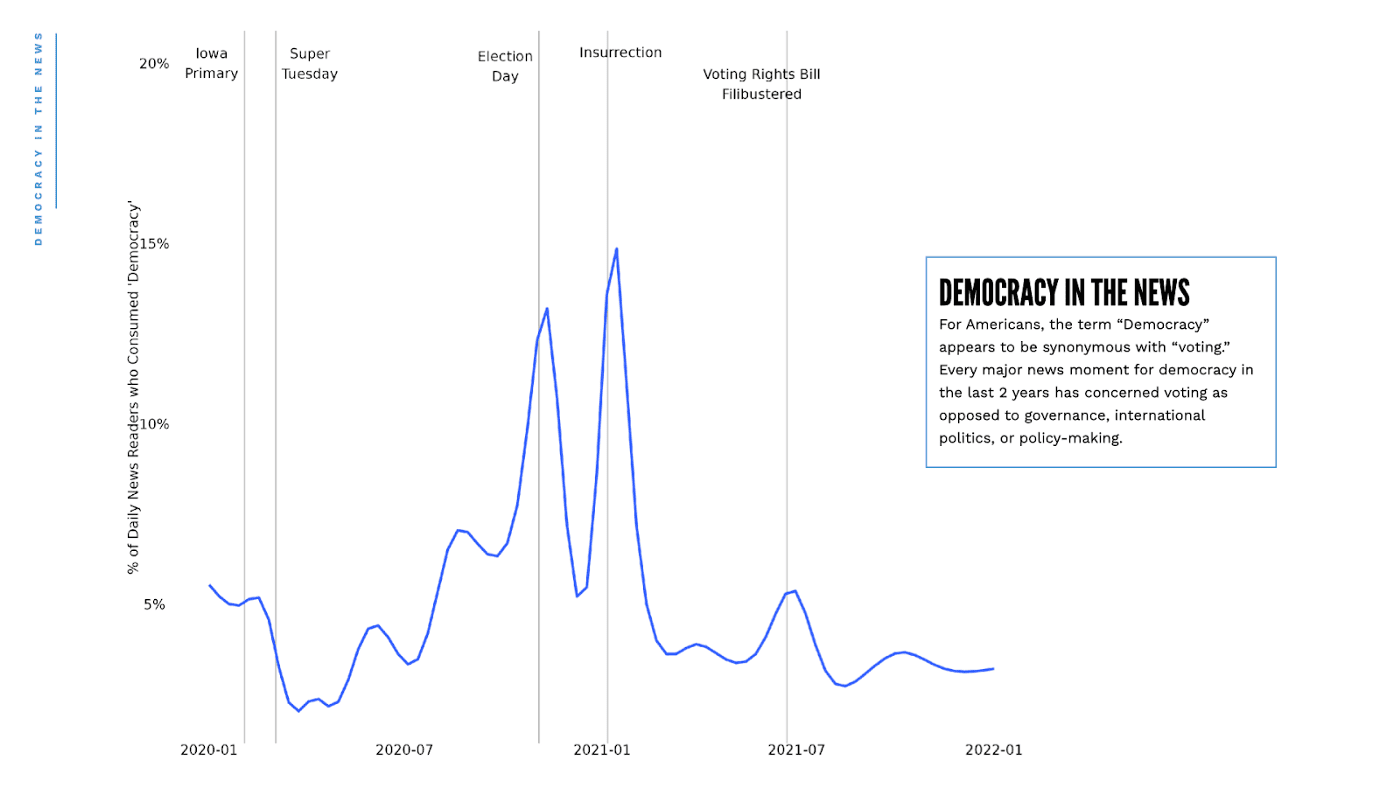
Certainly, voting is an important cornerstone of a healthy democracy, but the idea of democracy in America seems to be anchored around Election Day, and Election Day only. That means that every two years, we have to recreate, reconstruct, and rebuild pro-democracy narratives in America over and over again.
How do we knit together stories about democracy toward a narrative that isn’t dependent on elections or the calendar year? Narrative starts with audience, and audiences are defined by so much more than their political affiliations. We have to look at people’s larger cultural experiences and understand their values, starting with our four values-based audiences from the Narrative Observatory. People’s understanding of “democracy” is so much more than whether they vote left or right, but which democratic values resonate with the personal goals and values that shape their choices, as well as their media consumption.
These are all the news outlets that brought democracy content to our audiences in the last two years. If The Epoch Times and The New York Times are both bringing stories about a subject to audiences, it’s a good bet that the subject is the same, but the themes and values in those stories are not.
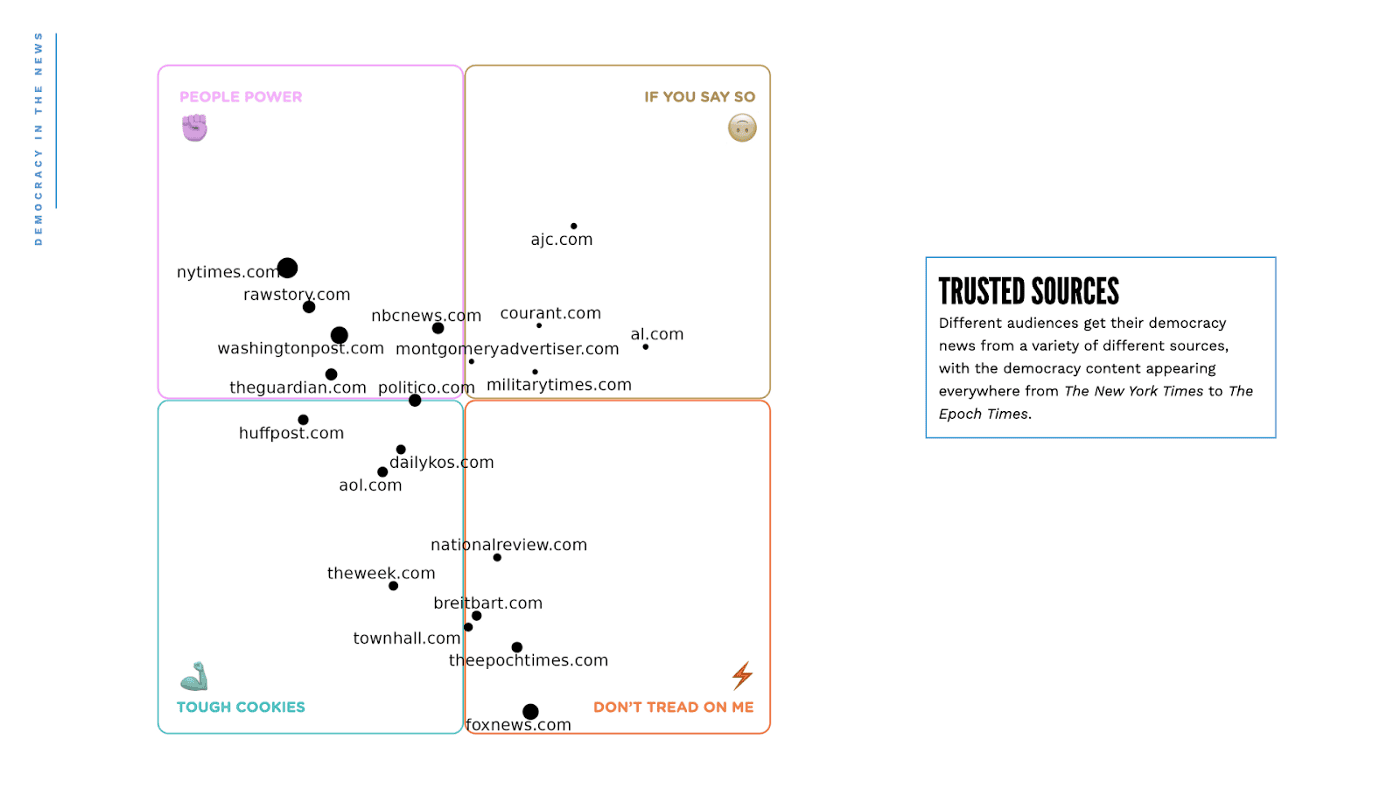
For each of our four audiences, we want to learn which “democracy” stories are resonating with them. Not only do people consume different news sources, but they follow and are activated by different “democracy” stories.
Don't Tread on Me, for example, contains people that are typically considered the heart of the conservative political base. They are also an audience where a commitment to and concern for democracy is often more prevalent than in the progressive base. For them, democracy means not socialism and trusting authority, stories that they follow closely in the media.
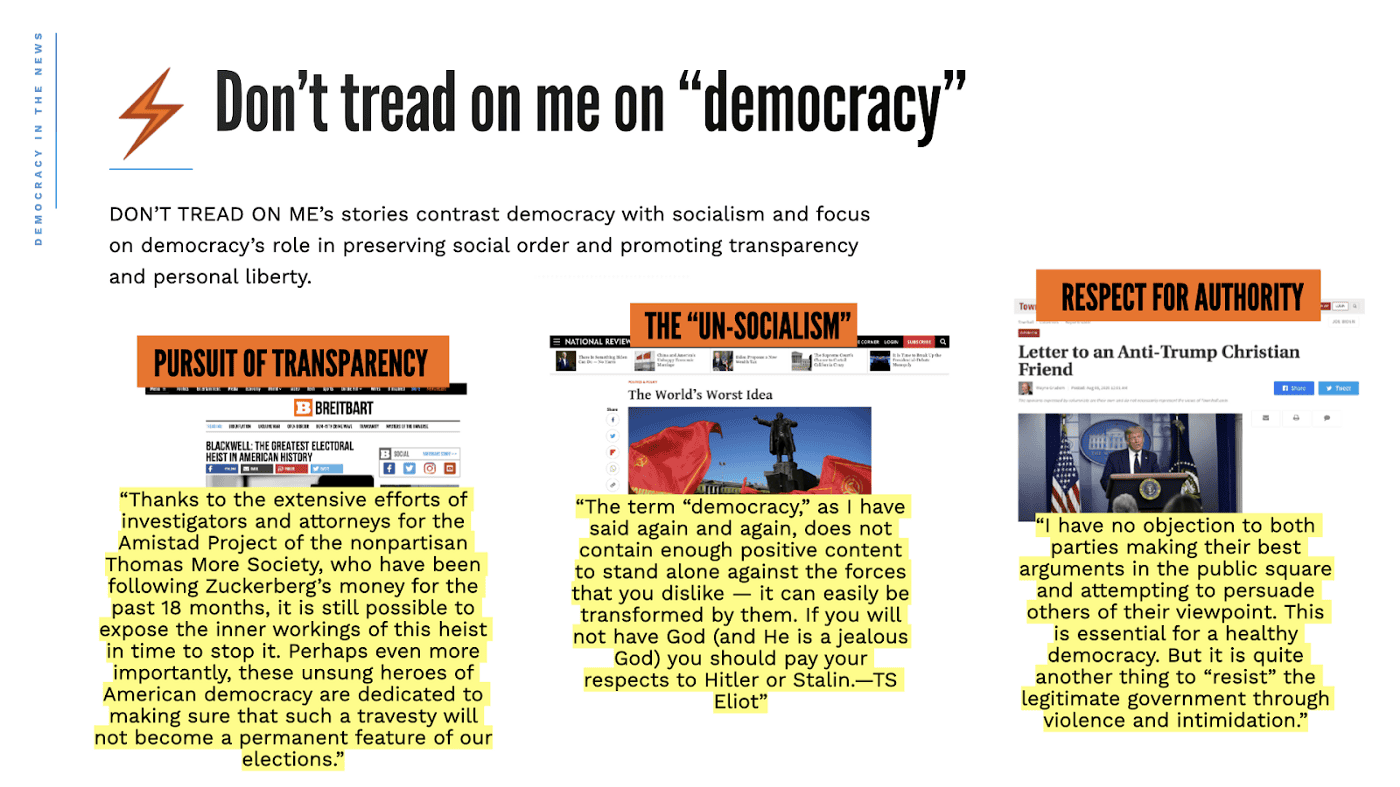
The audience we call If You Say So is often recognized as made up of the least regular voters, frequently distrustful of politicians and any institutional system. Though they express progressive political values, they tend to lag in consuming democracy content.
What the data tell us is that the key audiences that we hope to engage in democracy are not that interested in the currently available stories: stories about elections. Among their trusted sources, If You Say So rarely encounters the word “democracy,” so they may be the hardest to reach, least bought-in, and just generally so disengaged with news that it’s hard to imagine staging narrative interventions in conventional places.
They are, however, interested in access to the polls, an interest that is in line with their overall pursuit of autonomy and independence. Once we know what democracy stories the harder-to-reach audiences are actually engaged with, we can more easily build interventions that speak to the issues they care most about and around topics that matter most to them.
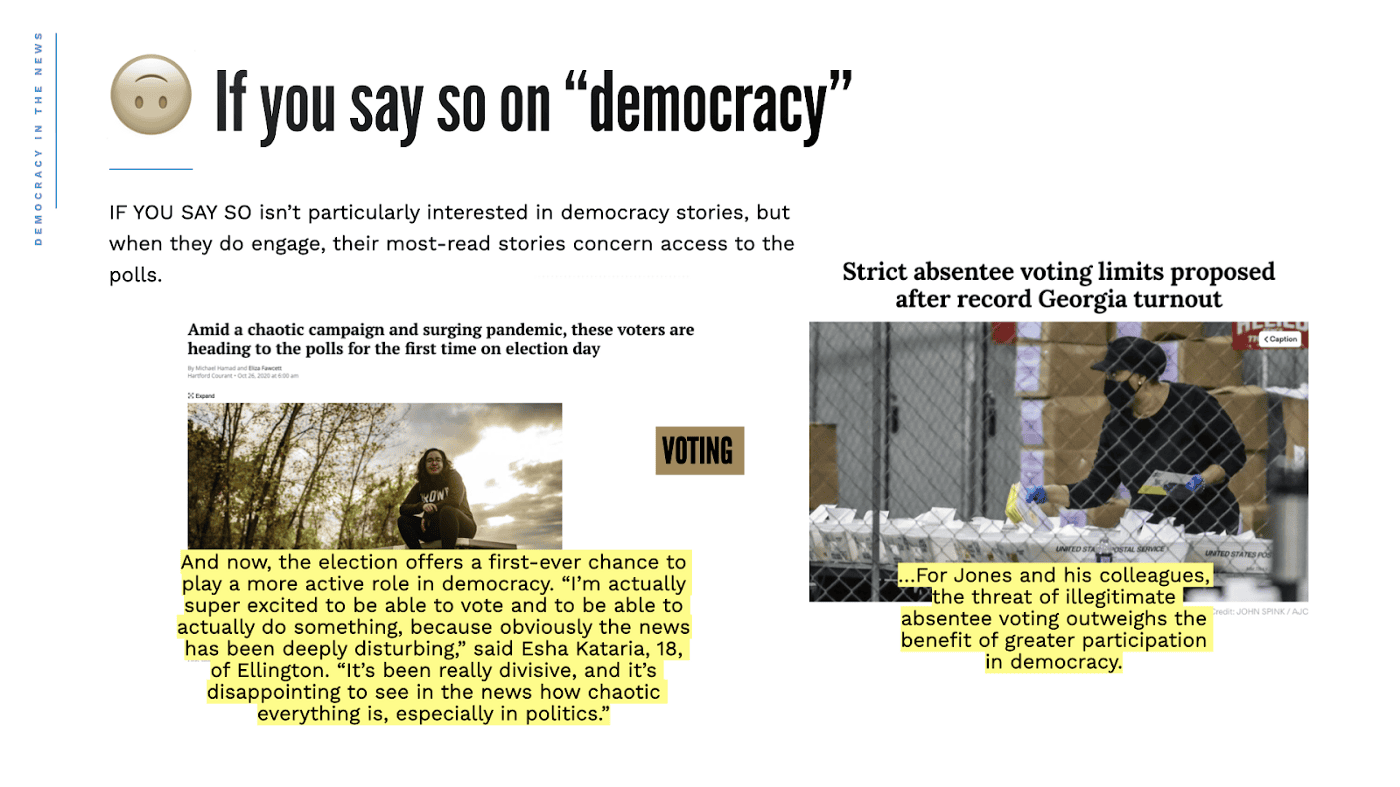
Right now, we talk about democracy when it’s time to vote — but how can we tell a story of democracy that’s ubiquitous, with a much larger narrative about America, one that is talked about all the time? It’s clear from this quick look at democracy in the news that democracy isn’t a singular idea that audiences spend their time thinking about. What they do engage with — and what might be able to move them — are the fundamental components of democracy that reflect their core values.
In the coming months, using our Narrative Observatory, a one-of-a-kind data tool which connects the minute-by-minute media behavior of 300,000+ people to media content and survey data, we hope to unpack more about democracy in these audiences in the following research phases:
To do this, we’re actively looking for partners and funders to help us shape our research agenda, produce a regular report, and attract subscribers to support and sustain this work. If you’re interested in partnering with us in this work, or would like to subscribe to this new report, please get in touch.


